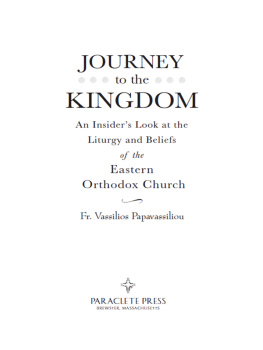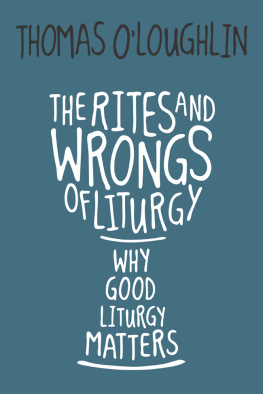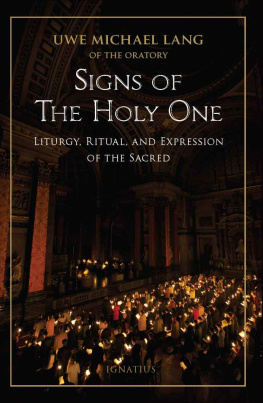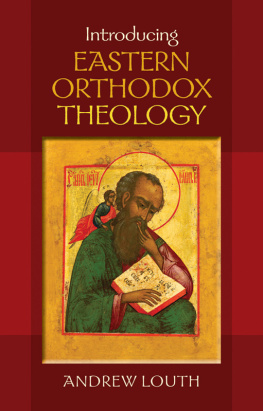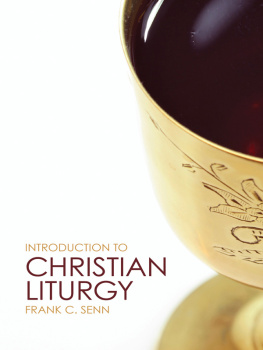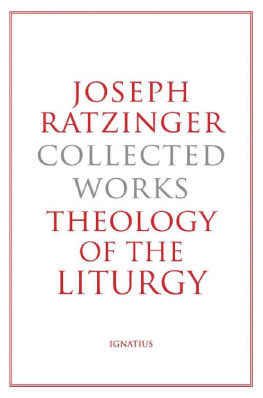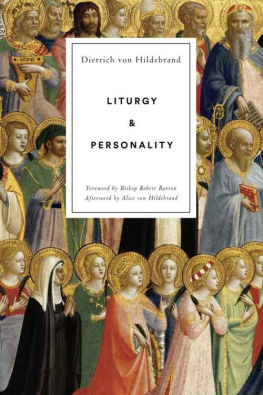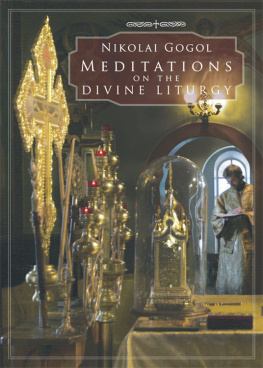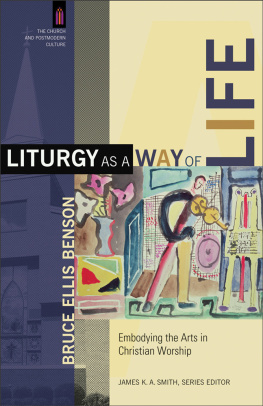CONTENTS
Guide
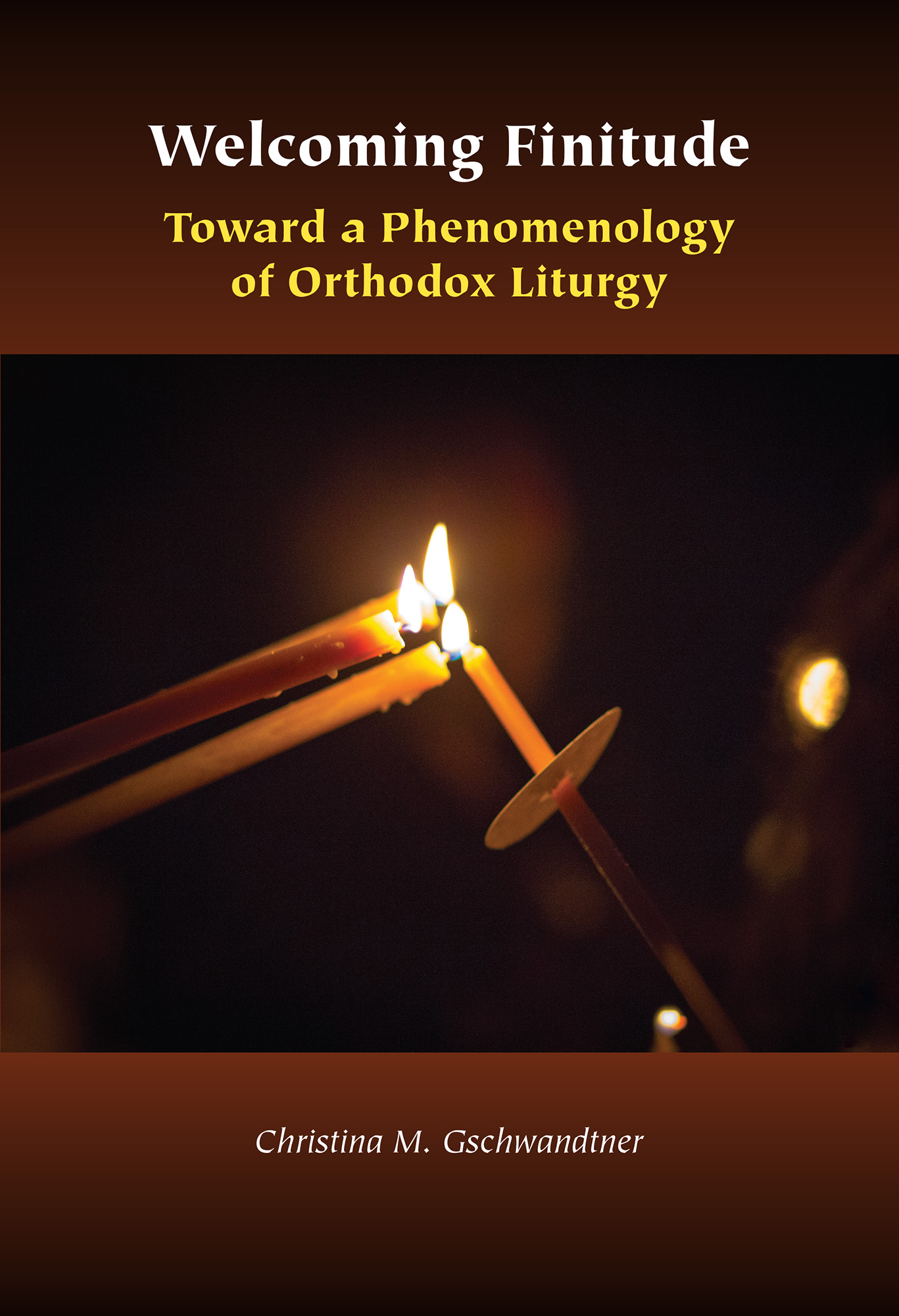
WELCOMING FINITUDE
ORTHODOX CHRISTIANITY AND CONTEMPORARY THOUGHT
SERIES EDITORS
Aristotle Papanikolaou and Ashley M. Purpura
This series consists of books that seek to bring Orthodox Christianity into an engagement with contemporary forms of thought. Its goal is to promote (1) historical studies in Orthodox Christianity that are interdisciplinary, employ a variety of methods, and speak to contemporary issues; and (2) constructive theological arguments in conversation with patristic sources and that focus on contemporary questions ranging from the traditional theological and philosophical themes of God and human identity to cultural, political, economic, and ethical concerns. The books in the series explore both the relevancy of Orthodox Christianity to contemporary challenges and the impact of contemporary modes of thought on Orthodox self-understandings.
WELCOMING FINITUDE
TOWARD A PHENOMENOLOGY OF ORTHODOX LITURGY
CHRISTINA M. GSCHWANDTNER
FORDHAM UNIVERSITY PRESSNew York 2019
Copyright 2019 Fordham University Press
All rights reserved. No part of this publication may be reproduced, stored in a retrieval system, or transmitted in any form or by any meanselectronic, mechanical, photocopy, recording, or any otherexcept for brief quotations in printed reviews, without the prior permission of the publisher.
Fordham University Press has no responsibility for the persistence or accuracy of URLs for external or third-party Internet websites referred to in this publication and does not guarantee that any content on such websites is, or will remain, accurate or appropriate.
Fordham University Press also publishes its books in a variety of electronic formats. Some content that appears in print may not be available in electronic books.
Visit us online at www.fordhampress.com.
Library of Congress Cataloging-in-Publication Data available online at https://catalog.loc.gov.
for Lisa Gassin and Tracy Gustilo
CONTENTS
This book attempts to open a space for a phenomenological account of Orthodox liturgy. It is thereby directed at three quite different audiences: first, liturgical theologians or scholars of ritual; second, philosophers (especially those who employ phenomenologythe study of experienceas their philosophical methodology); and third, Eastern Orthodox Christians or scholars of Orthodox Christianity, broadly conceived. The question of why one should bother thinking about liturgical experience philosophically can thus be raised in at least three different ways: First, why should liturgical experience be examined with philosophical tools? What sort of insight might philosophy provide for what is often an intensely personal religious experience? What can philosophy add to our understanding or especially our living of liturgical experience in a particular religious tradition? In short, what can a phenomenological exploration of liturgy add to the theological study of liturgy? Second, why should philosophy, even if it can examine religion, focus on liturgy? Why not deal with doctrine or belief statements or claims about the divine? Would these not be much more appropriate and congenial topics for philosophy to investigate? Of what interest could ritualespecially the ritual of a specific tradition possibly be to the philosopher? And third, why bother with Orthodox liturgy specifically? How could a philosophical investigation of liturgy possibly have anything to say to Orthodox Christians involved in liturgical practice? How might it illuminate their experience? This preface gives a brief preliminary answer to each of these groups of potential readers. The introduction will provide fuller accounts of phenomenology and liturgical theology inasmuch as they are in the background of this more focused philosophical study of Eastern Orthodox liturgy.
First, why should the Eastern Orthodox religious tradition involve itself in a phenomenological investigation of its practices? One reason is that Orthodoxy has traditionally stressed the importance of experience. For example, Pavel Florensky, an important early twentieth-century Russian Orthodox philosopher, begins his The Pillar and Ground of Truth with the claim that living religious experience is at the very core of the Orthodox tradition: Only by relying on immediate experience can one survey the spiritual treasures of the Church and come to see their value... The Orthodox taste, the Orthodox temper, is felt but is not subject to arithmetical calculation. Orthodoxy is shown, not proved. That is why there is only one way to understand Orthodoxy: through direct Orthodox experience.
One should think, then, that Orthodoxy would be particularly well suited to make a contribution to religious phenomenology. Yet often this insistence on experience remains rather generic, used primarily to speak of Orthodoxy as a living faith rather than a dead scholasticism. Furthermore, experience can easily become a purely subjective category, referring to a personal, interior encounter, which cannot be shared or articulated. If the experience is so singular and intimate that nothing can be said about it, how would one determine that it functions as a broader characteristic of Orthodoxy? Does not the positing of such experience become a rather arbitrary exercise in which one sort of unarticulated experience is posited against another without any way of distinguishing between them or even knowing to what they refer? Is there a way to articulate the broader structures of such experience without destroying it as experience or imposing foreign and inappropriate categories upon it?
This book will suggest that phenomenology can provide such a method to think more carefully about religious experience, specifically liturgical experience, in a way that allows it to unfold from itself. Phenomenology seeks to depict experiences as they actually reveal and manifest themselves, to allow us to see them as they show or give themselves. It is a form of attention and depiction that has its own rigor. It gets beyond merely individual and empirical experience in order to examine broader structures and patterns in ways that would allow us to think more deeply about the character and meaning of such experience. The careful depiction of the phenomena tries to uncover their truth (a-ltheia as uncovering of what has previously been covered up [lth]). It is therefore an eminently suitable method for examining religious experience as well.
This already begins to address the question of why such philosophical exploration might also be of interest to the liturgical theologian or the scholar of ritual. Alexander Rentel asks: Do we need liturgy? Why do we Orthodox Christians do this? Celebrate our services like this? Do they have to be this way? What do they mean? Do we even have to do liturgy as Christians? His discussion of holy things, holy people, and holy ground seeks to explore these structures, but his continual appeal to paradox and the attempt to interpret everything through the lens of this juxtaposition of opposites at times could do with more nuanced analyses of the experiences to which he appeals. A phenomenological depiction of such structures might supplement the theological account he provides.
Often how liturgy means is either simply presupposed or remains unarticulated. Paul Janowiak repeatedly refers to an ability to feel liturgy deeply in ones bones: In many ways, the real presence of Christ in the bread and He draws primarily on deconstruction and semiotics in his investigation into the meaning of worship. A phenomenological analysis might help supplement such a focus on linguistic analyses with a broader exploration of the experiential dimensions of liturgy and the ways in which they connect to the world outside of liturgy. Phenomenology is well suited to investigate these dimensions of liturgy and ritual by providing a rigorous methodology for depicting the structures of the liturgical experience. In this way, a phenomenological examination of liturgy might enable a deeper exploration of the way in which time, space, body, affect, and other such elements function in liturgical experience or at least supplement the investigations already undertaken by liturgical theologians.


